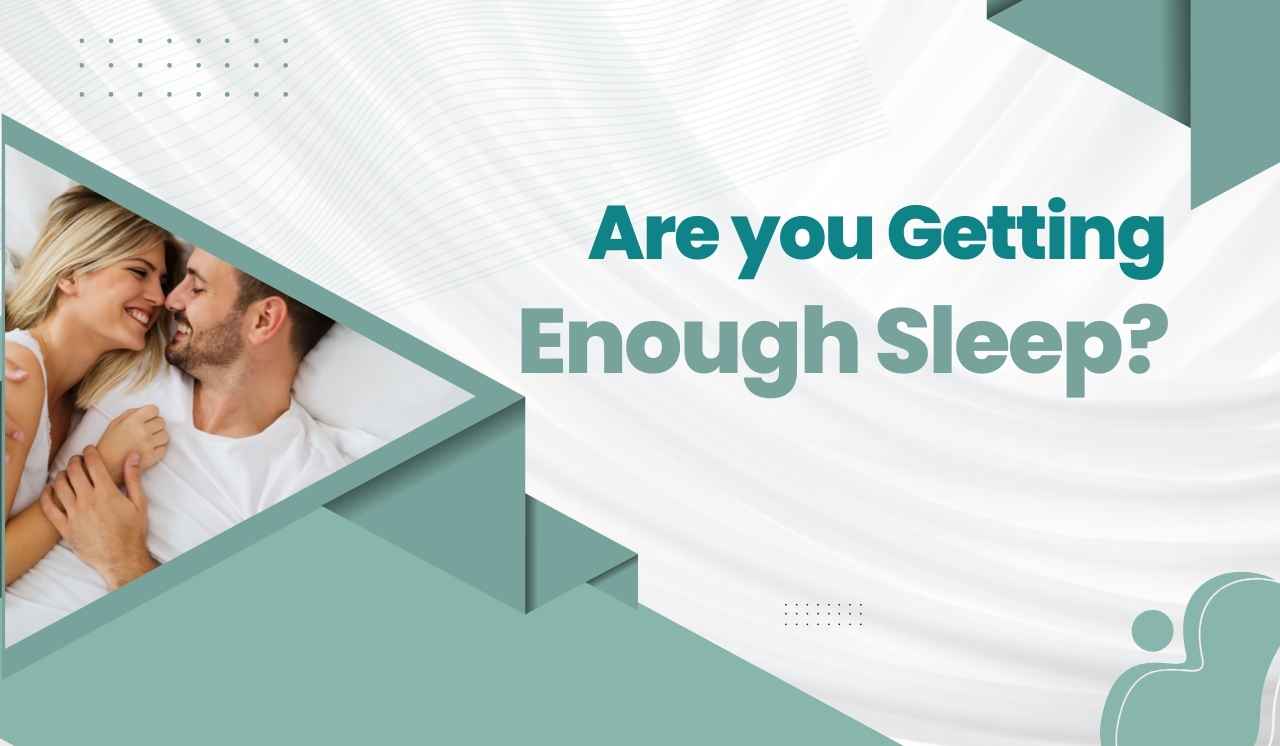Health & Wellness, Awake Alert, Personal Care
Are you Getting Enough Sleep
Are you Getting Enough Sleep?
Sleep is an altered state of consciousness in which we have limited interactions with our environment and are relatively quiet and still (depending on the stage of sleep). In contrast to our quiet physical state, the brain is very active during sleep and performs many important functions. Sleep is essential to all processes in the body, influencing our physical and mental functioning the next day, our ability to fight disease and build immunity, our metabolism, and our risk of chronic disease. Sleep is truly interdisciplinary because it affects all aspects of health.
Sleep is essential to all processes in the body, influencing our physical and mental functioning the next day, our ability to fight disease and build immunity, our metabolism, and our risk of chronic disease.
How much sleep do i need?
The amount of sleep a person needs varies depending on their age, lifestyle, and health. Here is a general guideline based on age:
- Newborns (0-3 months): 14-17 hours per day
- Infants (4-12 months): 12-16 hours per day, including naps
- Toddlers (1-2 years): 11-14 hours per day, including naps
- Preschoolers (3-5 years): 10-13 hours per day, including naps
- School-age children (6-12 years): 9-12 hours per night
- Teens (13-18 years): 8-10 hours per night
- Adults (18-64 years): 7-9 hours per night
- Older adults (over 65 years): 7-8 hours per night
Getting enough sleep is essential for physical health, cognitive function, and emotional well-being. Individual needs can vary, so it’s important to listen to your body and make sure you feel well rested and alert throughout the day.
What happens if you don’t get enough sleep?
Lack of sleep can have significant short- and long-term effects on your physical and mental health. Here’s a breakdown:
- Cognitive effects
Decreased attention span: Lack of sleep impairs your concentration and attention span, making it difficult to focus on tasks.
Impaired memory: Sleep is essential for memory consolidation. Insufficient sleep can lead to difficulty retaining new information.
Poor decision making: Lack of sleep affects your brain’s ability to process information and make sound decisions.
- Emotional and mental health
Increased stress: Lack of sleep increases levels of the stress hormone cortisol, leading to increased stress responses.
Mood swings: Lack of sleep can cause irritability, mood swings, and increased emotional reactivity.
Risk of anxiety and depression: Chronic lack of sleep is linked to higher rates of anxiety and depression.
- Physical health
Weakened immune system: Sleep is essential for immune function; Lack of sleep can make your body more vulnerable to infections.
Weight gain: Lack of sleep can disrupt hormones that regulate appetite, leading to increased appetite and weight gain.
Increased risk of chronic diseases: Long-term lack of sleep is associated with higher risks of diseases such as heart disease, diabetes, and high blood pressure.
- Performance and safety
Reduced athletic performance: Sleep is essential for recovery and performance. Athletes may experience decreased strength, endurance, and reaction time.
Increased risk of accidents: Lack of sleep impairs coordination and reaction time, increasing the likelihood of accidents, especially when driving or operating heavy machinery.
- Hormone imbalances
Hormone disruption: Sleep affects the production of hormones, including those involved in growth, stress response, and metabolism.
Impaired insulin sensitivity: Insufficient sleep can lead to insulin resistance, increasing the risk of type 2 diabetes.
- Long-term consequences
Cognitive decline: Chronic sleep deprivation can contribute to neurodegenerative diseases, including Alzheimer’s disease.
Impact on longevity: Studies have shown that insufficient sleep is linked to a higher risk of mortality.
How to Know If You’re Getting Enough Sleep
To find out if you’re getting enough sleep at night, ask yourself:
Do you feel healthy and satisfied with your current sleep schedule?
Do you feel like you’re getting enough sleep to be productive?
Do you ever feel sleepy during the day?
Do you rely on caffeine to get through the day?
Is your sleep schedule consistent enough, even on the weekends?
How to Get the Sleep You Need?
Healthy habits can help you sleep better and longer.
Give yourself time to sleep. A busy schedule can make it difficult to get a good night’s sleep.
Keep a sleep schedule. Go to bed and wake up at the same time every day, even on the weekends.
Create a sleep sanctuary. Keep your bedroom dark, quiet, and at a comfortable temperature. Use it only for sleeping, sex, and quiet activities like reading. Don’t bring electronic screens like TVs or cell phones.
Establish a bedtime routine. Avoid bright lights, heavy meals, caffeine, and alcohol before bed. Try things that help you relax, like a warm bath.
Exercise. Exercise for about 30 minutes a day, at least 5 hours before bed.
Take a nap if needed. Try to stay within 30 minutes so you don’t wake up groggy or disrupt your sleep schedule.
Don’t force it. If you find yourself awake in bed, get up and do something quiet, like reading, until you feel sleepy. Journaling can help quiet nagging thoughts.
Talk to your doctor. A medical condition could be causing your sleep problems.

